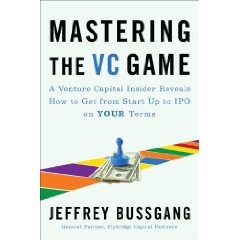I don't watch alot of TV, so I'm usually a late adopter when it comes to great television shows. Mad Men is no exception. Although the show is entering its fourth season, I'm just getting around to watching Season 1 and I am falling in love with the show. It reminds me of the Sopranos – flawed characters that you at times root for, at times despise, interlocked in an entertaining drama that centers on the fundamental search for happiness and respect.
So while I'm in the midst of enjoying Mad Men, it was with great amusement that I hosted a dinner with a dozen or so CEOs of advertising agencies and advertising technology start-ups the other night. Last year, I blogged about how Madison Avenue was going tech ("Revenge of the Nerds", I called it). At the time, I thought there was hope that the big ad agencies would evolve to become techno-savvy nerds and help lead the innovation charge. This year, it's a foregone conclusion in my mind that Madison Ave's Mad Men are doomed.
With the rampant digitization of advertising and the explosive growth of performance-based marketing, the nerds are taking over advertising. Advertising innovation is coming from technology-driven giants – like Google, Microsoft and now even Apple – as well as start-up companies that are nibbling away at the value-chain, including many of our own portfolio companies (e.g., DataXu, BzzAgent and digital Arbor).
Although many of these technology-driven companies are partnering with the major advertising agencies today, the agency CEOs at my dinner with very bearish on what the future held for the agencies and whether they would survive the New World Order. In their view, there are four reasons for this:
- Wall Street Pressure. In talking to advertising agency executives, you can't help but be struck by how much their EPS targets affect their behavior – and hamstrings their ability to invest. So long as they are slaves to Wall Street, the major advertising holding companies will be unable to undergo the necessary, wholesale transformation required to thrive in the digital age. It reminded me of James Carville's famous quip that in another life, he hoped to be reincarnated as a bond trader so that he could wield some real power. Agency CEOs seem to wish they were Wall St analysts or venture-backed CEOs rather than trapped as holding company leaders.
- CFO/Procurement. Each of the agency CEOs at our dinner bemoaned the fact that "above the line" advertising budgets were now in the hands of the procurement officer and that the power pecking order has become CEO, CFO, CMO. One of the CEOs at the dinner, Wayne Townsend of Click Squared, noted wryly that below-the-line marketing budgets has always been in the hands of the procurement officer. Welcome to the club! The problem for the agencies is that this trend means great creative (the Big Idea) and great relationships (three martini lunch) aren't important to the procurement officer, only hard ROI.
- Lack of Pay for Performance. One agency CEO pointed out that if you look at the revenue per employee at the major agency holding companies, it's a fraction of what it is for premiere management consulting shops, like BCG and McKinsey. In the absence of a pay for performance paradigm (akin to performance-based marketers like Google, who get paid per click or per acquisition), the agencies are forced to operate like a glorified body shop, whether their campaigns move the needle on the business or not. This caps the upside and results in odd incentives, such as worrying more about getting fired than about delivering great work.
- Talent. The best technology and business development talent is not flocking to advertising agencies. They are flocking to advertising technology start-ups and Google, Microsoft and Apple. Over time, the best talent wins in any industry. By this reckoning, the advertising agencies are doomed.
The advertising agencies are thus in a structural box, a classic case of Innovator's Dilemma. Meanwhile, venture capitalists and entrepreneurs smell blood. Young companies are going directly to CMOs to mine their marketing budgets. And marketers are more aggressive about experimenting with new media, socu has Twitter and Facebook, with the help of niche consultants and technology providers.
The only saving grace for the industry may be that their remains great power in the Big Idea. Great creative can still move the needle and provides the direction for all that whiz bang, targeted, performance-based execution. The success of creative boutiques like McGarry and Bowen suggests that niche is still a lucrative one.
As for me, I'll keep enjoying "Mad Men" and continue to invest in nerdy, little technology companies to make them obsolete, historical relics.

